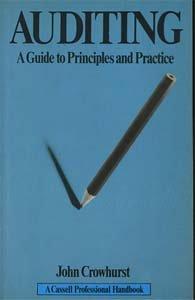Question
1) The Thomlin Company forecasts that total overhead for the current year will be $11,455,000 with 150,000 total machine hours. Year to date, the actual
1) The Thomlin Company forecasts that total overhead for the current year will be $11,455,000 with 150,000 total machine hours. Year to date, the actual overhead is $7,839,000 and the actual machine hours are 90,000 hours. The predetermined overhead rate based on machine hours is
Round the factory overhead rate to the nearest dollar before multiplying by the number of hours.
$87 per machine hour
$127 per machine hour
$76 per machine hour
$52 per machine hour
2)
The Thomlin Company forecasts that total overhead for the current year will be $11,711,000 with 185,000 total machine hours. Year to date, the actual overhead is $7,689,000 and the actual machine hours are 86,000 hours. If the Thomlin Company uses a predetermined overhead rate based on machine hours for applying overhead, as of this point in time (year to date), the overhead is
Round the factory overhead rate to the nearest dollar before multiplying by the number of hours.
$2,271,000 underapplied
$2,271,000 overapplied
$2,952,300 overapplied
$2,952,300 underapplied
3)
In the manufacture of 10,000 units of a product, direct materials cost incurred was $173,900, direct labor cost incurred was $110,300, and applied factory overhead was $49,000. What is the total conversion cost?
$173,900
$159,300
$333,200
$49,000
4)
Department G had 2,400 units 25% completed at the beginning of the period, 13,400 units were completed during the period, 2,000 units were 20% completed at the end of the period, and the following manufacturing costs debited to the departmental work in process account during the period:
| Work in process, beginning of period | $31,600 |
| Costs added during period: | |
| Direct materials (13,000 units at $9) | 117,000 |
| Direct labor | 81,600 |
| Factory overhead | 27,200 |
All direct materials are placed in process at the beginning of production and the first-in, first-out method of inventory costing is used. What is the total cost of 2,400 units of beginning inventory which were completed during the period (round unit cost calculations to four decimal places and round your final answer to the nearest dollar)?
$31,600
$46,436
$43,469
$48,436
5)
Department S had no work in process at the beginning of the period. It added 13,600 units of direct materials during the period at a cost of $95,200; 10,200 units were completed during the period; and 3,400 units were 30% completed as to labor and overhead at the end of the period. All materials are added at the beginning of the process. Direct labor was $59,600 and factory overhead was $9,200.
The total cost of units completed during the period was
$125,582
$160,735
$133,946
$71,400
6) The Mountain Springs Water Company has two departments, Purifying and Bottling. The Bottling Department had 2,990 liters in beginning work in process inventory (30% complete). During the period 58,420 liters were completed. The ending work in process was 5,200 liters (70% completed). All inventories are costed by the first-in, first-out method. What are the total equivalent units for direct materials (using the FIFO method) if materials were added at the beginning of the process?
7)
The cost per equivalent units of direct materials and conversion in the Bottling Department of Beverages on Jolt Company is $0.50 and $0.20, respectively. The equivalent units to be assigned costs are as follows.
| Direct Materials | Conversion | |
| Inventory in process, beginning of period | 0 | 2,880 |
| Started and completed during the period | 51,530 | 51,530 |
| Transferred out of Bottling (completed) | 51,530 | 54,410 |
| Inventory in process, end of period | 3,360 | 2,100 |
| Total units to be assigned costs | 54,890 | 56,510 |
The beginning work in process inventory had a cost of $3,460. Determine the cost of completed and transferred out production and the ending work in process inventory. Round answers to nearest whole dollar.
| A) Completed and transferred out production _____________________________ | $ | |||||||||||||||||||||||||||||||||||||||||||||||||||||||||||||||||||||||||||
| B) Inventory in process, ending_____________________________
8) Sleep Tight manufactures comforters. The estimated inventories on January 1 for finished goods, work in process, and materials were $37,000, $35,000 and $28,000 respectively. The desired inventories on December 31 for finished goods, work in process, and materials were $45,000, $37,000 and $20,000 respectively. Direct material purchases were $580,000. Direct labor was $214,000 for the year. Factory overhead was $152,000. Prepare a cost of goods sold budget for Sleep Tight, Inc.
9)Sleep Tight, Inc. manufactures bedding sets. The budgeted production is for 34,900 comforters this year. Each comforter requires 1.5 hours to cut and sew the material. The cost of cutting and sewing labor is $19.90 per hour. Determine the direct labor budget for this year. 10) Osprey Cycles, Inc. projected sales of 69,733 bicycles for the year. The estimated January 1 inventory is 6,467 units, and the desired December 31 inventory is 6,361 units. What is the budgeted production (in units) for the year? | ||||||||||||||||||||||||||||||||||||||||||||||||||||||||||||||||||||||||||||
Step by Step Solution
There are 3 Steps involved in it
Step: 1

Get Instant Access to Expert-Tailored Solutions
See step-by-step solutions with expert insights and AI powered tools for academic success
Step: 2

Step: 3

Ace Your Homework with AI
Get the answers you need in no time with our AI-driven, step-by-step assistance
Get Started


